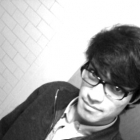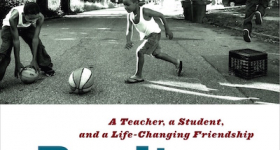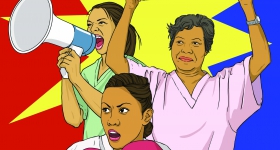Blog Editors' Note: Hyphen's newest blogger, Saif Ansari graduated recently from UCLA with a bachelor's degree in philosophy and will soon start his master's at NYU, also in philosophy. He plans to study political philosophy, ethics and law. So basically, best not to pick arguments with him; he will likely win.
Saif wrote for two years as a columnist for UCLA's student-run newspaper The Daily Bruin. At UCLA he wrote for and edited several other publications. Also find him online at his personal blog. Welcome, Saif!
Before I interviewed artist and student Anida Yoeu Ali of the 1700% Project I watched her video "Mistaken for Muslim." Part of the 1700% Project, the video depicts in vivid spoken word form a number of hate crimes directed at Muslim-Americans since 9/11. I was especially moved by the dancer -- his pained movements appear intermittently throughout the video as Ali angrily describes each hate crime.
The 1700% Project is an art collaboration designed by Ali to address the rise of violence and hate crimes against Muslims and those perceived to be Muslims after 9/11. The project is based primarily on the narrative-poem performed by Ali in the video. Each element of the project is an expression of the poem in a different art medium.
Before I had a chance to talk to her, however, Ali informed me that an art exhibit she created at the School of Art Institute of Chicago as part of the 1700% Project had been vandalized. Ali's exhibit, designed specifically to address the issue of hate crimes, had ironically become the site of one.
The exhibit, a gallery wall with lines of white vinyl letters from actual hate crime police reports on it, had been defaced, with large caricatures and a bubble drawn around the text "Kill all Arabs" (the phrase is mentioned in a hate crime report).
The defacement was clearly "an act of hate, meant to humiliate," Ali told me. And, because of the highly political character of the exhibit, the defacement was "not just an assault on me as an artist," Ali said. "This is an attack on multiple communities to which the work speaks for."
The university did not agree. It surprisingly took little action, and quietly reported the incident several days later in a school-wide email only after Ali's incessant calls and emails. "I was just astounded by the university's response,” said Ali.
She then made a number of demands, including that an investigation be conducted, and that the school commit to protecting political and cultural work in the future, but the school chose only to compensate her for materials lost in the incident. Ali received hate mail too, some of which claimed that the defacement incident was her fault, or not actually a hate crime.
Ali also did not enjoy much support from her department or the art community. "[The committee in charge of the gallery] is not as progressive, apparently, as it claims," Ali said. She felt that the art institute is wary of political work in general. "Narrative art based in communities of color is not really supported by the department or the school."
Fortunately, Ali did enjoy great support from her local community. Muslims and non-Muslims alike, for example, came in great numbers to attend Ali's public restaining of the wall. The Council of American Islamic Relations provided Ali with legal support. Ali also told me that the Japanese American Citizens League was notably one of the first to indicate its support.
Ali's work has seen success, as well. "Mistaken for Muslim" recently won not only first place in its category but also the grand prize at the 2010 "One Chicago, One Nation" online film contest.
"It was really inspiring to see my community around me," Ali said. "It was heartening, in contrast to the institutional response."
"It was like a protective energy."










Comments